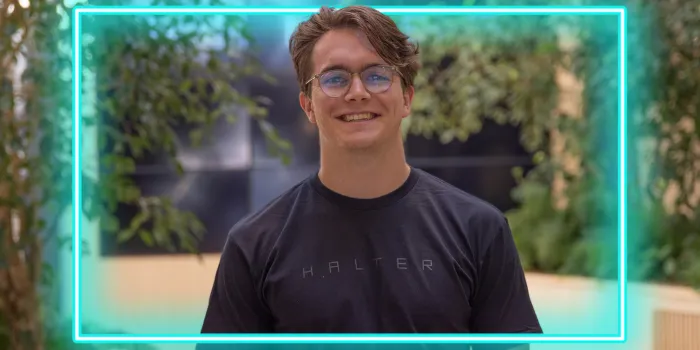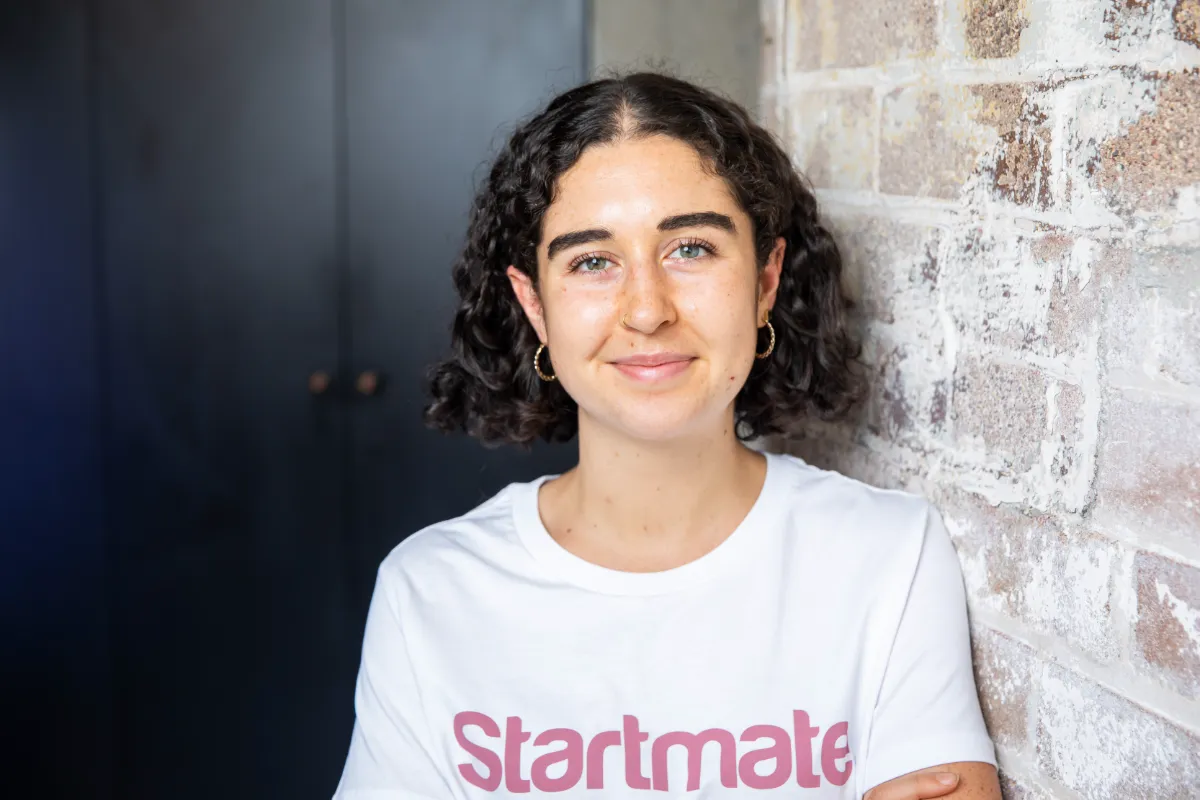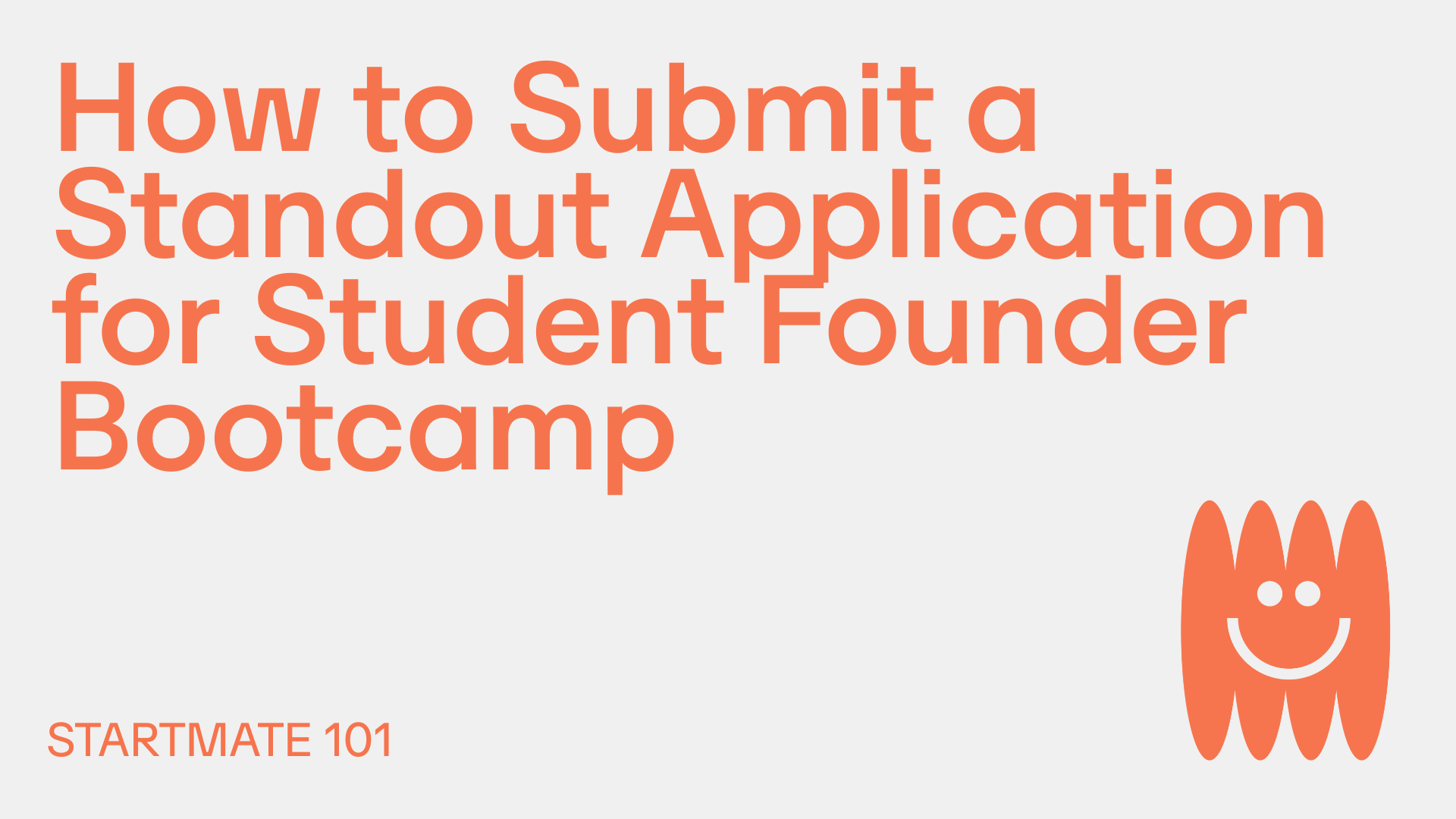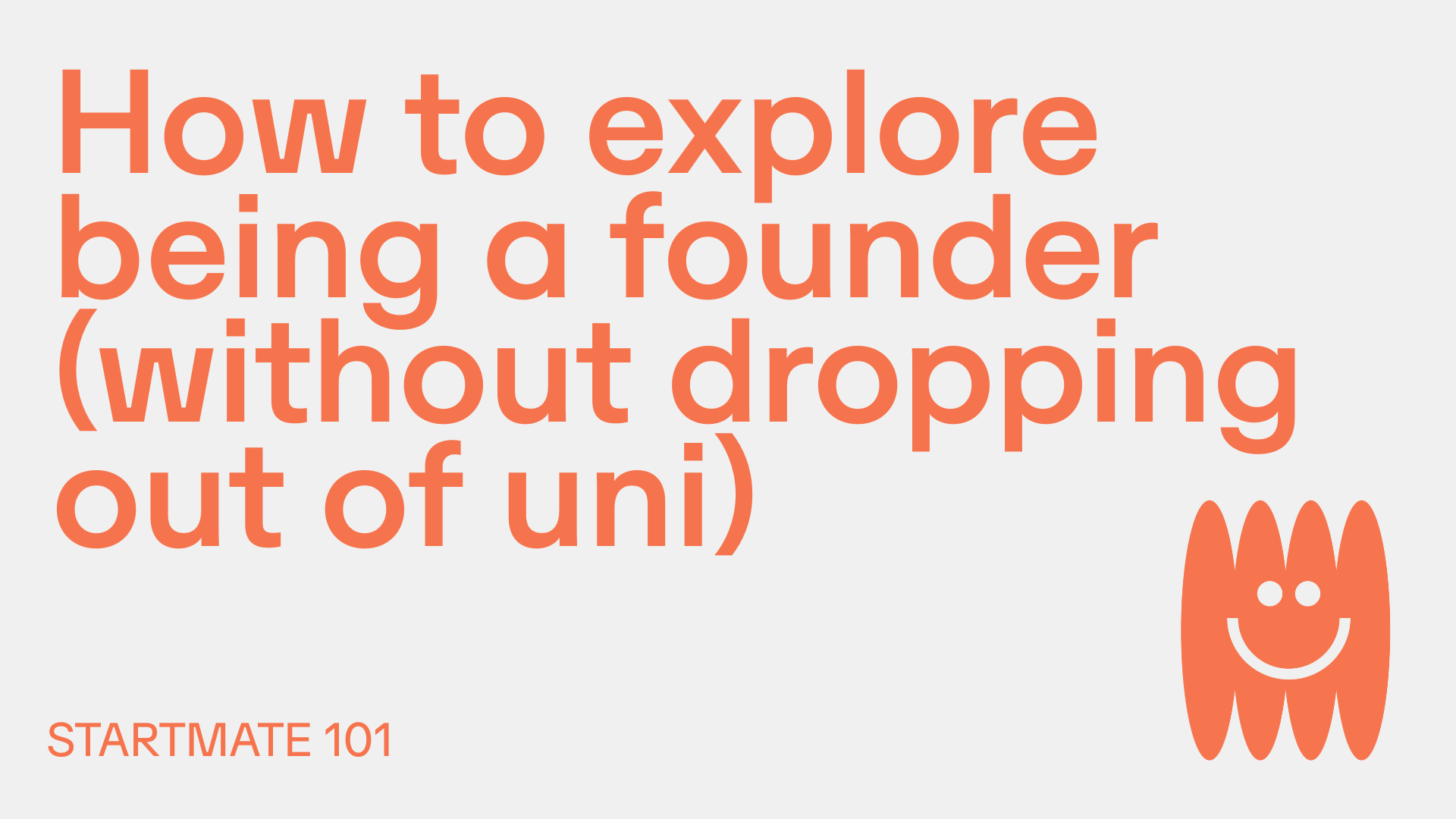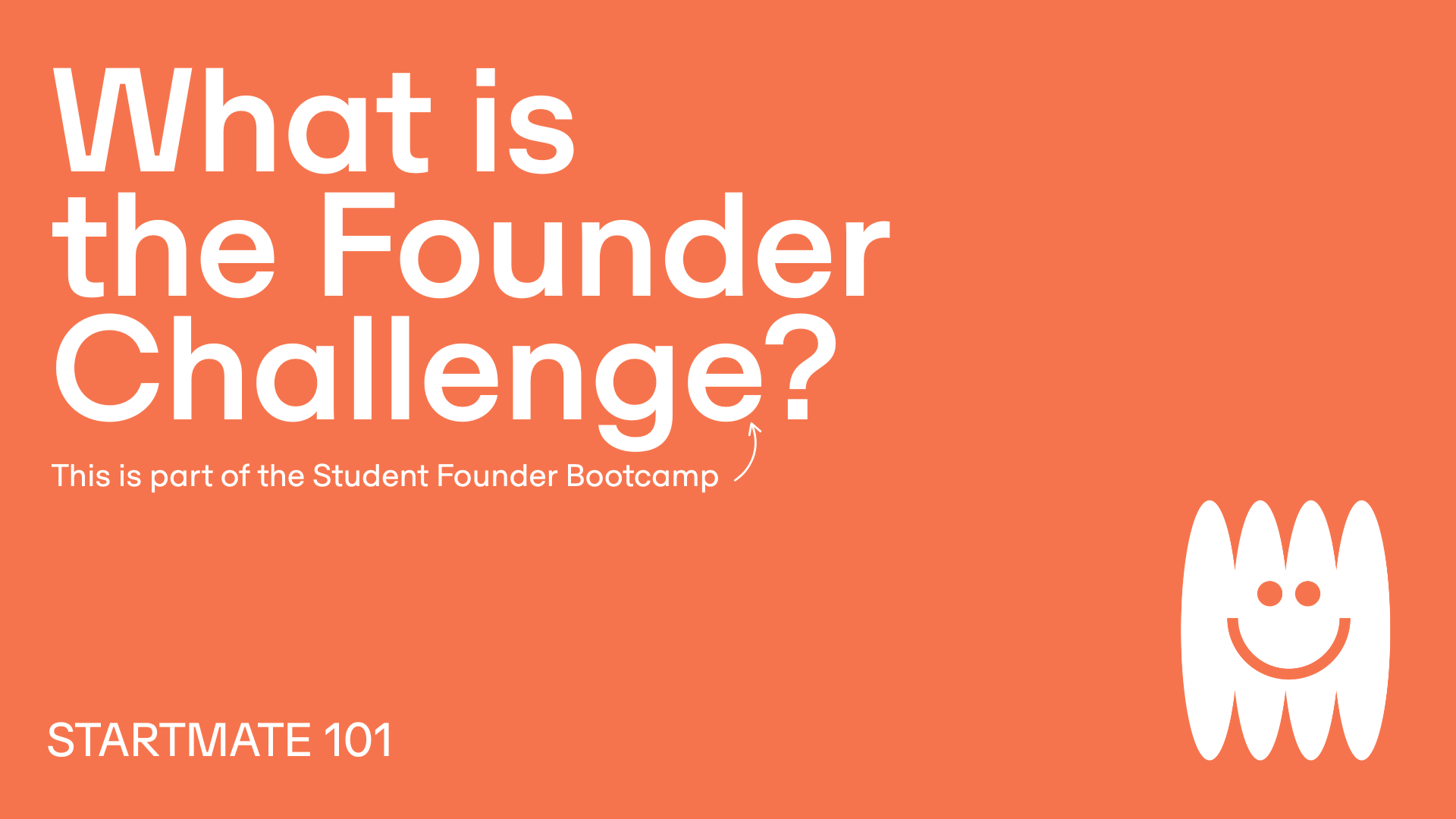A few years ago, when Oli Clive-Griffin was nearing his high school graduation, he found himself increasingly dissatisfied with the education system. He didn’t know what he wanted to study at university, so instead of picking something that fit OK, he got on a plane and went travelling.
And when in Rome, he met two fellow backpackers who prompted him to consider a career in engineering for the first time.
A long flight, an even longer COVID lockdown, a programming bootcamp and the Student Fellowship later, he landed his dream job at Halter. This is his story to date.
Part one: Disenchanted with the system
“I grew up in a little country town an hour north of Wellington,” Oli tells me.
“I had a pretty fortunate upbringing in the country. I got to go to a good school.
“But by the time I got to my last year, my academic results were starting to slip. Because I didn’t have a clear vision for university, I was losing motivation. I had become much more interested in the arts, I was actually thinking about studying music production at one point.
“I was looking around, and people were working super, super hard on stuff that I didn’t really see the point in. I was starting to get a bit cynical about the whole system.
“I didn't go to university because I just didn't know what I wanted to study there. A lot of my classmates didn’t know either, but their attitude was ‘ah well, I’ll just go and do something’. I thought that was a mistake.
“It was the best choice I’ve ever made, even if the motivation might’ve been more rebelliousness or indecision than insight.”
Part two: When in Rome
“After high school, I did a little bit of travelling overseas with a friend of mine. We stayed with his family in Switzerland for a few weeks,” he says.
“After that, I did a few weeks of solo backpacking in Europe. When I was in Rome, I met these two guys; one was at university in Dubai studying computer science and the other one was an intern at Facebook. They told me what they were doing and it sounded super interesting. I got along with both of them really well.
“And shamelessly, the guy from Facebook told me how much he was earning and that piqued my interest too.
“I got back to New Zealand at the beginning of February. My plan for the rest of that year was to work at my parents' restaurant while exploring different options. Then, the COVID lockdowns hit.”
Part three: Sacrificing for skills
“I used the opportunity to start learning to code online, through a website called Free Code Camp. You've probably heard of it. It's got really well-structured courses, really beginner level,” he tells me.
“At the time, I was doing jujitsu at a local gym, and a friend of mine from there told me about a coding bootcamp called Enspiral Dev Academy. I started that in September. I moved down to Wellington for three months for the course and graduated just before Christmas.
“I then got a job at a cafe, and was spending as much of my free time as possible applying for software jobs and continuing learning to program by myself, doing projects and online courses.
“When you talk to people with a computer science degree, they’ll often say a lot of what they learned at uni doesn’t apply to their job.
“The implicit deal with Enspiral is that you will learn to code in three months. You’ll learn very quickly, you'll learn the most important skills, and you won't learn anything you’re not going to use in your job.
“You learn all the right things, but you also kind of sacrifice a little bit of credibility. So it takes people a bit longer to find an internship or a job.
“But I knew this going in. It was a sacrifice I was willing to make.”
Part four: The Student Fellowship
“Then I came across the Startmate Student Fellowship. I applied on a whim and didn’t think much more of it, but when I actually got in, I realised it was exactly what I needed.
“If you go to university, you spend a lot of time around other young people who are trying to achieve the same thing as you. That’s another trade-off with studying through Enspiral.
“Startmate was really, really awesome because it introduced me to people on the same wavelength, trying to work towards the same goals. It also pushed me to make some big career moves.
“I had been looking for jobs in Wellington, and hadn’t reached out to Halter because they are based in Auckland. But after being around so many cool, ambitious Student Fellows, I realised it was time to move, and that Auckland was where I needed to be.
“I got Sian Govind’s email address (the recruiter at Halter) from another Student Fellow and wrote her a cold email. It took me about four hours to write a tiny email; I wanted to make it absolutely perfect. I heard back, went through the interview phases, went to Auckland for the final interview, and got the job.
“I have been working here for five months now. It's been incredible. I have to pinch myself every now and then.
“In hindsight, I am so glad I got turned down by all the other companies. Out of all of them, Halter is the one I would pick.”
Part five: Future musings
“Halter didn’t care that I don’t have a degree. It was about demonstrating skill,” Oli says.
“A degree is meant to be a signal of skill. But if you can demonstrate skill without it, that's just as good.
“My lead engineer actually dropped out of high school and started at Halter at 19. And one of the front-end engineers I work with has a similar story to me, having worked in hospitality while self-studying on the side.
“Naval Ravikant has a great quote: ‘If the primary purpose of school was education, the internet should obsolete it. But school is mainly about credentialing.’
“Obviously, I would go to Harvard or Stanford or MIT in a heartbeat if I could. It would mean spending all my time around a network of super ambitious geniuses.
“But as for education, I’ve already got access to all of the best teachers and resources through the internet. In the modern world, with the internet and enough agency, anyone can build and demonstrate skill completely on their own, most people just don’t realise it yet.”

